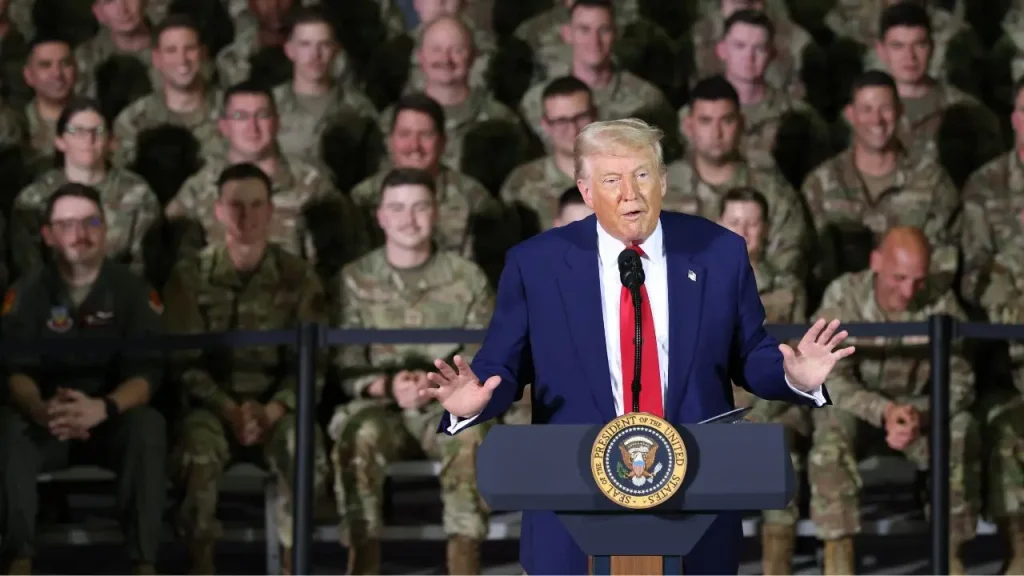Billionaire Timothy Mellon Revealed as Mystery Pentagon Donor During Government Shutdown
During the recent government shutdown, when many federal employees faced uncertainty about their paychecks, a substantial donation of $130 million to support military personnel captured national attention. Initially announced by President Trump as a gift from an anonymous “patriot” who wished to remain unnamed, the donor has since been identified as Timothy Mellon, a reclusive billionaire with significant connections to the former president’s political endeavors. This revelation provides a fascinating glimpse into the intersection of private wealth, political influence, and government operations during crisis moments. Mellon’s decision to step in when congressional gridlock threatened military paychecks raises important questions about the role of private citizens in funding essential government functions.
Timothy Mellon comes from one of America’s most storied financial dynasties, as the grandson of former Treasury Secretary Andrew W. Mellon. Despite his family’s prominence, he has largely shunned the public spotlight, preferring to live a private life in Wyoming, where he relocated from Connecticut citing his preference for lower taxes and fewer people. In his 2015 autobiography, Mellon described a personal political evolution from liberal to conservative viewpoints. Though not historically known as a major political donor before Trump’s first election, Mellon has since become a financial powerhouse in Republican politics, contributing hundreds of millions to support both Trump and broader GOP initiatives. Perhaps most notably, he gave $50 million to a super PAC supporting Trump’s 2024 campaign, which stands as one of the largest single political contributions ever disclosed in American politics.
Beyond his support for Trump, Mellon has demonstrated a particular interest in backing Health and Human Services Secretary Robert F. Kennedy Jr., who briefly ran as a presidential candidate in 2024 before endorsing Trump. Mellon’s financial support extended to Kennedy’s presidential campaign and his controversial anti-vaccine nonprofit, Children’s Health Defense. This pattern of giving reveals Mellon as someone willing to support outsider figures who challenge established political and medical institutions. His emergence as a political megadonor from relative obscurity highlights how the Trump era has reshaped the landscape of political financing, bringing new wealthy individuals into the political arena who might previously have remained on the sidelines of campaign finance.
The Pentagon’s acceptance of Mellon’s $130 million donation occurred under what it described as “general gift acceptance authority,” with the specific condition that the funds be used to offset service members’ salaries and benefits during the shutdown. However, the scale and nature of this donation raised immediate questions about its legality and precedent. Some experts have suggested the arrangement may potentially violate the Antideficiency Act, which explicitly prohibits federal agencies from spending money in excess of congressional appropriations or accepting voluntary services. This legal gray area highlights the tension between emergency pragmatism and constitutional principles regarding congressional power of the purse. Though well-intentioned, the donation creates a potentially problematic precedent about private individuals stepping in to fund core government functions.
While the gesture appears patriotic on its surface, the practical impact of the donation remains somewhat limited in the broader context of military compensation. The Trump administration’s 2025 budget requested approximately $600 billion in total military compensation according to the Congressional Budget Office, making Mellon’s $130 million – while extraordinary for an individual contribution – relatively modest in relation to the Pentagon’s overall payroll needs. Analysis suggests the donation would equal roughly $100 per service member, covering only a fraction of typical military salaries. This highlights the fundamental reality that even the wealthiest private citizens cannot sustainably substitute for proper government funding authorized through the normal congressional appropriations process.
The revelation of Mellon as the mystery donor offers a window into how wealth, politics, and government function intersect in contemporary America. President Trump’s initial characterization of the donor as someone unusual for not seeking publicity – “which is pretty unusual in the world I come from, and in the world of politics, you want your name mentioned” – unintentionally highlighted the transactional nature often associated with large political donations. While Mellon may have preferred anonymity in this specific instance, his broader pattern of political giving suggests he understands the influence that comes with being a major financial backer of political figures. As Americans debate the proper roles of government, private wealth, and the funding of essential services, Mellon’s donation serves as a case study in the complex and sometimes problematic relationship between billionaire benefactors and public institutions during moments of governmental dysfunction.


